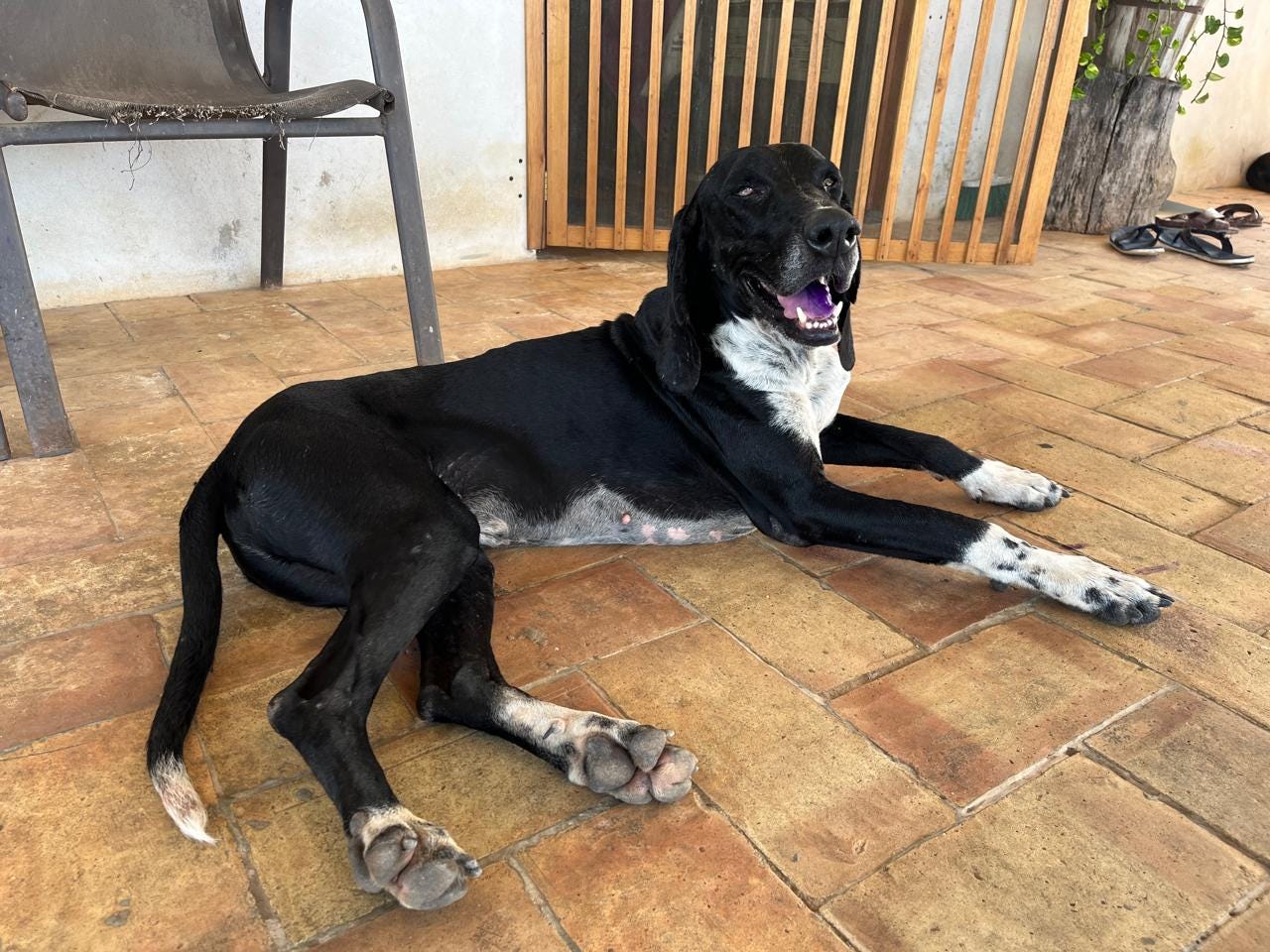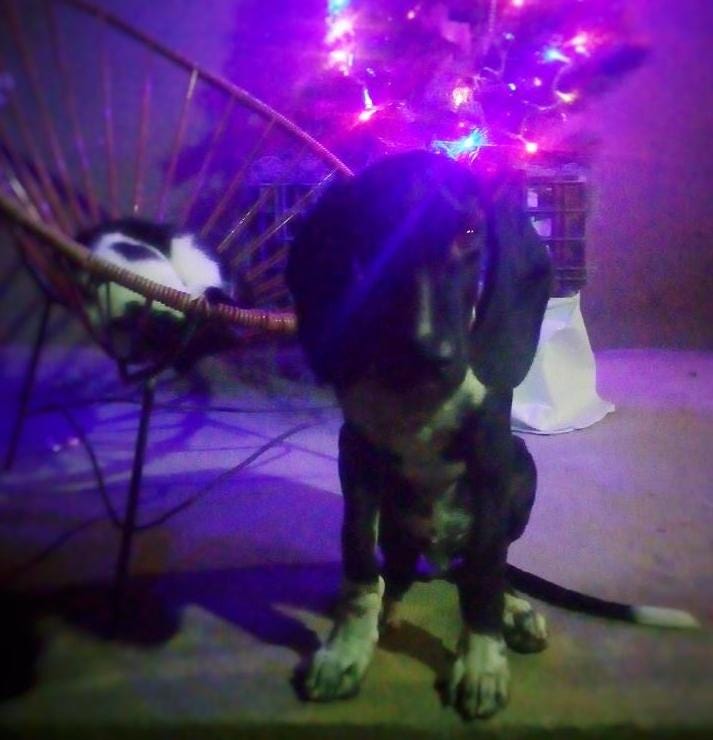I met Maclovio for the first time around Christmas 2018. Isma and I were visiting his parents for the holidays, where we encountered a black puppy with cartoon proportions: floppy ears down to his knees, paws so large they seemed to slip out from under him, a polka-dotted patch stamped on his chest. He trailed after Isma and played bite-the-rope with an indefatigable exhilaration that tired everyone out. They called him “Chiquitín” at that time, though even then it had a bite of irony—he was a huge puppy, with every sign of growing into an even bigger dog. Chiquitín got sick soon after we left. Isma and his sister got his mom to send him to the vet, where he stayed for about ten days before recovering. Dog owners in the pueblo rarely use the vet for anything but sterilizations and rabies vaccines. If a dog gets sick or injured, it’s often seen as the owner’s fate or luck that determines its recovery. Maclovio’s luck was that we intervened—his mother’s other dog, Kiara, had died of some kind of pulmonary infection the year before.
The next time I saw Chiquitín was a few months later, when his name hung like a joke from his barrel chest and two-handed snout. Isma was filming Hilando Sones1, and not-so-Chiquitín wrestled with our cinematographer’s dog for hours each day. Half-grown hound against a stocky gray bulldog wasn’t a fair match for stamina, but the bulldog held his own. At the end of the day, he drooped to the cinematographer’s side.
“You can’t call him Chiquitín,” Isma declared one free afternoon. “His name should be Maclovio.”
“Why Maclovio?” I asked.
“You never saw the Maclovio the Turk?”
I had never seen el Turco Maclovio, but it turned out he was some kind of gunslinger of Mexican golden age cinema. Isma had been fascinated as a child with the story of how Maclovio had lost his left hand: he’d hit a woman with it, and in a fit of self-flagellating remorse, cut off the offending member.
This seemed like a lot of weight to put on a dog. “He doesn’t sound like much of a namesake.”
“Maclovio is height of nobility! He’s the Turk!”
“Is he actually supposed to be Turkish?”
“No idea. But this guy is definitely a Maclovio.”
His niece perked up. “Microbio?” she said. “Come here, Microbio!”
Everyone cracked up. Chiquitín/Maclovio/Microbio looked among the smiling humans, tail wagging at an uncertain thirty degrees.
“Maclovio, then?” Isma’s mother said. “That’s fine.”
I couldn’t believe that Isma, who did not even live here, could summarily rename his family’s dog, but no one else questioned it. Maclovio learned his new name quickly. I have no idea what he thought about it.
The first time I met Maclovio full-grown was after we moved to town. As we approached the gate to his parents’ house, a black dog as big as a pony came barreling into the muddy street and launched himself at us. His paws came up to my shoulders. From his throat issued a series of strangled howls and staccato groans, as though he were singing in a language that did not require a tongue. His eyes were rimed with twin stars of dried mucus. They stared into mine with an agony of love.
“Maclovio!”
It was only after Isma said his name that I recognized him. He was so much bigger, and so much sadder. I couldn’t believe that he had recognized us when we’d spent no more than ten days total in his presence. And he hadn’t just recognized us—he knew us and loved us and had thought he’d never see us again.





